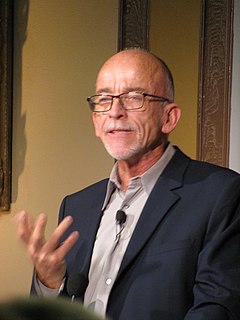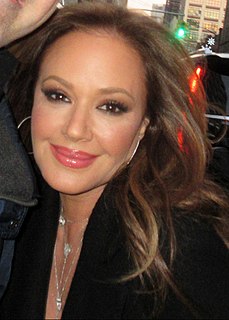A Quote by John Ashbery
But always and sometimes questioning the old modes
And the new wondering, the poem, growing up through the floor,
Standing tall in tubers, invading and smashing the ritual
Parlor, demands to be met on its own terms now,
Now that the preliminary negotiations are at last over.
Related Quotes
It's unsettling, to lose the safety of the familiar, even when what's disrupted is an ordinary routine. When I began this poem, I was grieving for the loss of my old barbershop in Manhattan, and wondering at the strangeness of my new one. I didn't have any idea the poem would break into the underworld, opening a deeper subject: the continuing force of the old griefs routine helps to mediate, and my strange, sheer wonder at my own survival. Where's home now? In the contingent present, in which anything can disappear, and where we're sometimes granted some form of grace.
We live in a society right now which is the last phase of the ecosystem in terms of the old entertainment value, or the old entertainment construction, which is we've gone down to this instant gratification, instant numbers, instant understanding, instant. But it's like the exact - it has perfected itself to the instant click, when, in a way, creativity originates as a much more complex beast. So we now have to reinvent a new canvas where we can indulge in it. And that's where the digital revolution creates a whole new ecosystem of entertainment.
Yet you could feel a vibration in the air, a sense of hastening. It had started with the moon, inaccessible poem that it was. Now men had walked upon it, rubber treads on a pearl of the gods. Perhaps it was an awareness of time passing, the last summer of the decade. Sometimes I just wanted to raise my hands and stop. But stop what? Maybe just growing up.
I was walking every morning, and I'd take my iPod and paper and pen.?As I walked, I wrote a poem, and then I'd come home - and sometimes it's legible, sometimes not - I typed the poem up. So I have a new, yet to be published, collection of poems now. It's called Walker's Alphabet, and among other things, it is about walking. My most recent collection of poems in 2010, incidentally, was titled WALKING backwards.
We must get back into relation, vivid and nourishing relation to the cosmos and the universe. The way is through daily ritual, andis an affair of the individual and the household, a ritual of dawn and noon and sunset, the ritual of the kindling fire and pouring water, the ritual of the first breath, and the last.
The most violent revolutions in an individuals beliefs leave most of his old order standing. Time and space, cause and effect, nature and history, and ones own biography remain untouched. New truth is always a go-between, a smoother-over of transitions. It marries old opinion to new fact so as ever to show a minimum of jolt, a maximum of continuity.
Ever bike? Now that's something that makes life worth living!... Oh, to just grip your handlebars and lay down to it, and go ripping and tearing through streets and road, over railroad tracks and bridges, threading crowds, avoiding collisions, at twenty miles or more an hour, and wondering all the time when you're going to smash up. Well, now, that's something! And then go home again after three hours of it... and then to think that tomorrow I can do it all over again!
I think, as we go through life, we can sometimes, while still staying essentially true to ourselves, pick up mannerisms or modes of expression that are like curlicues. And there was a lot of that that I recognized sometimes. And I remembered, sometimes dimly, why those phrases felt so tasty to me, why that particular curl felt so good to me. But from my point of view now, it was almost inaccurate. It changed the meaning of what I was saying in a way that it seemed like a distortion.
The proposed liberal solution was always negotiation. Just as they believed in nuclear arms negotiations for their own sake, they believe in a "peace process" without regard to what its consequences might be....It was impossible for any peace plan to fail in their eyes, since lack of progress was nearly always interpreted as evidence that new talks were now "urgent".





































